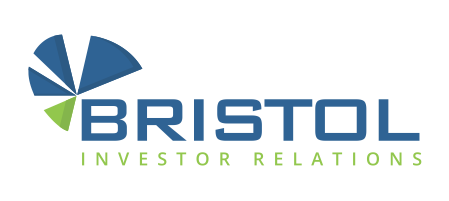Why IR and perceptions matter in business
Why IR and perceptions matter in business

According to a recent study undertaken by IR Magazine, almost nine out of ten members of the investment community will assign a sizeable premium to the share price of companies with a well-run IR program and an even bigger discount to those with a substandard one.
Findings from the study show that the size of the company can increase the premium or discount assigned. 74% of fund managers and analysts covering or investing in large cap stocks will add 5-10% to the share price compared with 65% for mid caps and 57% for small cap stocks. The report also served to highlight that the appointment of an IR officer with a good reputation and experience increases their interest for potential investment and coverage opportunities. Interestingly sell side analysts assign the most value to great IR representation, with 40% adding a 10-15% premium or more compared to 32% of buy side analysts and 34% of fund managers. The sell side is also more inclined to apply the steepest discounts for less credible IR – with 13% doing so compared to 10% of fund managers and only 7% of buy side analysts. That means for public companies of all sizes, IR is a vital role in valuation as well as investor perception. Below are some increasingly important factors investors are looking for today in a well run and executed IR program.
Investor meetings/ analyst days
Investors value companies that put on well organized and frequent analyst days. Covering a variety of topics with presentations given by multiple layers of management within the business it gives great insight and updates to how the business is operating and progressing in its strategy. Access to these people and the ability to ask questions, tours to the head office/ plant is also valuable and should be considered as a regular calendar event no matter the size of the company.
IR programs
Well run IR programs are easy to see and are made up of experienced teams of industry experts that have a wide-reaching network on the buy and sell side both locally and internationally. Investors value a well executed IR program as it gives them access to information readily, transparency into events and operations and access to Management and the IR team. As is seen from the IR Magazine study, people also place significant premiums on well executed IR programs. A detailed and smoothly run quarterly process, frequent deal and non-deal roadshows and interaction with investors, time spent answering questions and adding meaningful insight into macro factors and the general industry and responsiveness during good and bad times all go a long way to running a great IR program.
Reporting
Good reporting is elevated to great reporting when the IR function can go beyond the mandated filings and reports and give insightful updates frequently to stock holders, analysts, the media and general financial community. Depth of information as well as a constant flow of relevant information is helpful and necessary for all concerned. Looking at different and innovative ways to report information also is a way to set oneself apart from peers. One such example is Restoration Hardware, the US home furnishings company, who presents its quarterly earnings call in a video format presented by various senior management that is in keeping with its brand and delivers a strategic and in depth look at the numbers, mission and vision and enables the viewer to get behind the numbers and truly understand what is driving them and the direction and performance of the company in jargon free language that is easy to understand.
ESG
ESG has been garnering an ever-increasing share of attention from investors and the financial community for the past few years. According to a survey by AIMA and Cais, close to $59B has been allocated by hedge funds to investing in responsible businesses. One in five firms say they are now committing 50 percent of their firm’s assets to responsible assets. Following this, globally, one in five firms say they are committing at least fifty percent of their firm’s assets to responsible assets with seventy percent of North American firms seeing increased investor awareness. To meet this growing need, about forty percent of firms have either hired a responsible investment specialist or are planning to do so. It is clear that ESG is not a fad or an issue to tick the box but rather an investor led interest that is here to stay. Investors and governmental bodies expect the Board of Directors and Management to address the relevant ESG topics to their business and communicate a clear and concise strategy how they will affect the business long term and what measures are being taken now to ensure sustainability. For more on this you can read a previous ESG Bristol article here.
A recent Harvard Business School study found that 82 percent of investors take ESG information into account when investing, mostly because they find it materially affects performance. So, whether a company’s approach to ESG is more sector specific or leaning towards a more general perspective – investors and markets expect companies to provide clarity to its employees, investors and the general public. IRO’s need to be prepared to educate both internal and external audiences on the framework they have chosen, data they disclose and be transparent in its disclosure, plans and impact that ESG will have on its business and performance.
As in life, perceptions matter even in investor relations. Research shows us that a well executed IR program and experienced team knows what to communicate and when in order to simplify the investment thesis of their company. Some elements are vital to running a great IR program and members of the financial community have grown to expect to see them incorporated in daily business dealings.
Sources:
IR Magazine
Restoration Hardware
RBC – Global Asset Management
